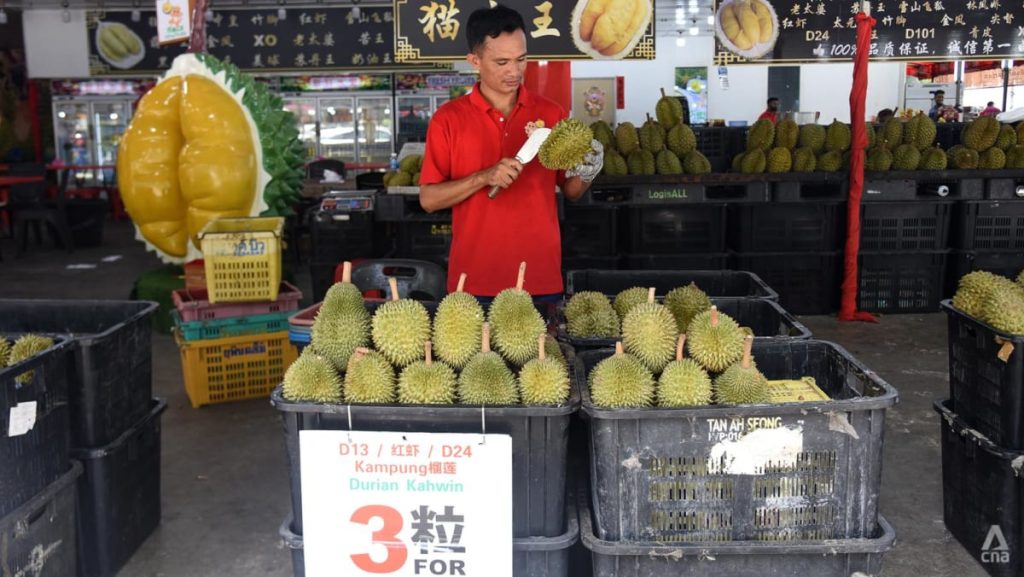The durian consultant Mr. Lim highlighted that the new flavor trending in the China market is Black Thorn, which has a sweeter taste compared to the slightly bitter Musang King. He emphasized the importance of being nimble and adapting quickly to changes in tastes in order to remain relevant and compete in the growing Chinese demand for durians.
According to data from the agricultural ministry, Black Thorn only accounts for one percent of Malaysia’s total durian production, while Musang King holds a significant share of 36 percent. Kampung durians, primarily consumed locally, make up 38 percent of production, followed by D24 varieties at 11 percent and hybrid durian clones at 14 percent. However, Mr. Chong predicted a shift in these percentages due to changing trends in China, despite the higher cost of Black Thorn compared to Musang King.
In terms of pricing, Black Thorn durians typically cost RM80 per kg in Malaysia, while Musang Kings are priced at RM50 per kg. Mr. Chong explained that in China, the rarity of a durian variety attracts more attention from consumers seeking new tasting experiences. He emphasized the need for Malaysia to ensure its farms are resilient to extreme weather conditions, which are expected to worsen due to climate change, in order to maintain the quality and price of durians.
Mr. Chong stressed that regardless of the durian variety being cultivated, without proper protection from adverse weather conditions, the quality of the fruit will be compromised, leading to lower grades and prices. He pointed out that inadequate protection could result in a downgrade from a Grade A premium fruit to Grade B or Grade C, affecting the desired fruit physiology and aroma.
In conclusion, the shift in Chinese consumer preferences towards Black Thorn durians presents an opportunity for Malaysia to capitalize on this growing market demand. However, to fully take advantage of this trend, it is crucial for Malaysian durian farms to invest in climate-resilient practices to ensure consistent quality and pricing. By adapting to changing tastes and market dynamics, Malaysia can enhance its position as a leading supplier of durians to meet the evolving demands of consumers in China and other international markets.













